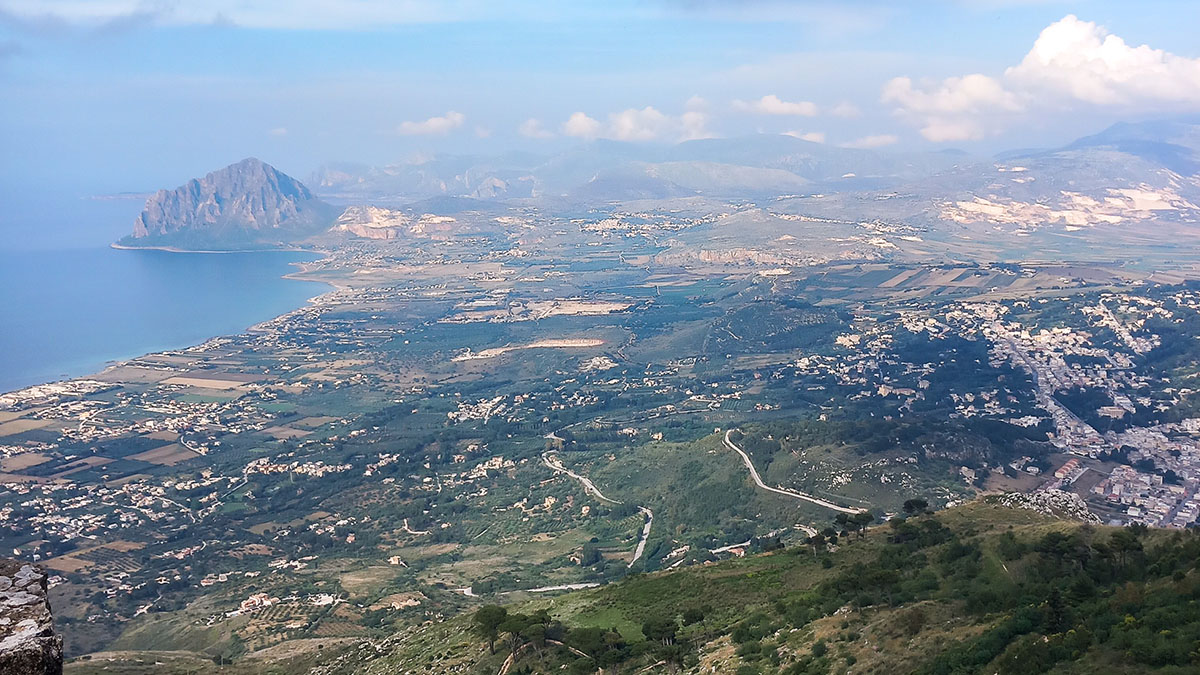A placement in Sicily is the perfect opportunity to work with refugees and practise language skills. In this student story, we hear about Joanna’s time abroad as part of her master’s, and how she supported international minors and adults in a variety of language settings.
Gaining Practical ExperienceOn MA Migration and Intercultural Studies, in addition to theoretical and policy-based studies, you have the opportunity to gain practical experience. This could be an internship or fieldwork with governmental or non-governmental organisations (NGOs). For her placement experience, Joanna chose to go to Sicily with the help of Prof Federico Faloppa.
“The placement came about because I was aware that Federico had some connections with organisations in Italy, and I wanted to gain some more experience internationally and to practise my language skills (I studied French and Italian before the MA). I met with Federico to discuss placement options, and he gave me some information about different organisations working in Italy who we could get in touch with. I was especially interested in the contact he had in Palermo, which was a language school called ItaStra at the university there. They had a particular focus on and expertise in teaching Italian as a second language to refugees. They were willing to host me for a month, and to offer me the opportunity to observe and help with some of their classes.”
Joanna had the opportunity of a variety of language placement experiences.
Working in a refugee language school
“I began by following a class for unaccompanied asylum-seeking minors. There was a mixture of more traditional language class activities, such as reading and listening comprehension tasks and grammar exercises, and more creative 'workshop' elements. We also took the class on excursions around the city, to enable the young people to learn more about the local area and to enjoy time outside together. When this class finished, I spent a week observing an Erasmus class for adult learners, before returning to work with unaccompanied young people in a project called 'Lingue e Pace' , Languages and Peace. My role in the classroom mostly involved supporting the teacher by providing additional support to individual students. Many of the students spoke either English or French, so I was able to explain the tasks and answer questions.”
Developing intercultural skills
Living and working abroad can bring challenges, but it also builds self-reliance, adaptability, and confidence, and it enhances graduate prospects.
“I really enjoyed the placement experience, especially when I was working in the class for unaccompanied asylum-seeking minors and on the Languages and Peace project. The teachers were amazing and so knowledgeable, and I felt that I learnt a lot from them. People were open and friendly, and Federico was able to put me in touch with some of his friends and colleagues [from civil society organisations], who were helpful and kind. I loved living in Palermo and exploring the city! Unfortunately I did encounter some [travelling] difficulties whilst on placement, and things didn't always go to plan, so there were definitely stressful parts. But overall it was a valuable experience and enriching part of the MA.”
Building on learning
Joanna found that studying MA Migration and Intercultural Studies was excellent preparation for working abroad:
“I found that the MA really helped me on placement as I had a strong foundation in Migration Studies and an awareness of some of the issues facing refugees and migrants. In the context of my placement, the Language and Migration module we took as part of the MA was really helpful in reflecting on my work and understanding the aims and approaches of the placement organisation. I feel that the MA has developed my intercultural skills and enabled me to feel more confident in working in an international context.”
Find out more about this master’s degree and how to apply
University of Sanctuary
Students interested in a degree in MA Migration and Intercultural Studies may also like to know that the University of Reading has been recognised as a University of Sanctuary, becoming part of a network of higher education institutions in the UK who have a proud and radical tradition of supporting refugees and people in the asylum system. Reading’s award has been achieved with Prof Federico Faloppa’s participation.
